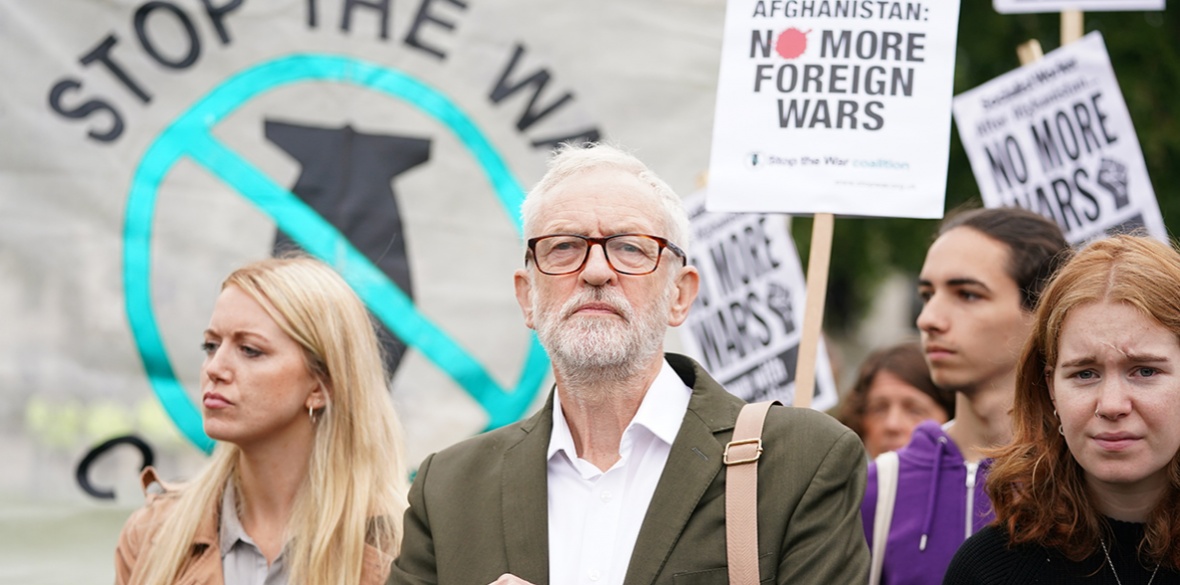This is the last article you can read this month
You can read more article this month
You can read more articles this month
Sorry your limit is up for this month
Reset on:
Please help support the Morning Star by subscribing here
JEREMY CORBYN called for a revitalised peace movement to stop wars in Ukraine, Yemen and elsewhere and ban nuclear weapons in a Hiroshima Day address to the Eisteddfod in Wales.
On the last day of the Welsh cultural festival on Saturday, the former Labour leader saluted the “amazing achievement” of Wales being declared a nuclear-free zone 40 years ago and promised: “The vision of peace will always be stronger and more powerful than the voices of war.”
Mr Corbyn said the record of conflicts begun or fuelled by Western powers from “the invasions of Afghanistan and Iraq to the wars in Syria, Libya and Yemen” was “poverty, destitution, terrorism and hunger,” and that Russia’s invasion of Ukraine had only led to more loss of life and new instabilities.
“A world free of nuclear weapons is possible, they do not provide defence,” he said.
Mr Corbyn also used the address to send solidarity to Julian Assange, who languishes in a maximum security prison threatened with extradition to the United States to face 175 years behind bars for exposing its war crimes.
Events took place around Britain to mark the 77th anniversary of the US atomic bombing of Hiroshima on August 6 1945, which together with the Nagasaki bombing three days later killed over 200,000 people.
At a rally in London’s Tavistock Square, Campaign for Nuclear Disarmament general secretary Kate Hudson reminded peace activists that “we are part of a global majority.
“Sometimes we may feel assailed because of the things we see and hear in the media, the rhetoric that comes from our government.”
She pointed to the United Nations ratifying the Treaty on the Prohibition of Nuclear Weapons as evidence that “the overwhelming majority not only of peoples, but of states too, are opposed to nuclear weapons.”
She slammed the British government for not only renewing Trident at astronomical cost but “committing to increase our nuclear arsenal by 44 per cent” and warned that the US decision to return US nuclear warheads to Lakenheath in Suffolk was also a sign of the rising danger of nuclear war.
“These two proliferatory developments are ones we are going to work might and main to prevent,” Ms Hudson vowed.












